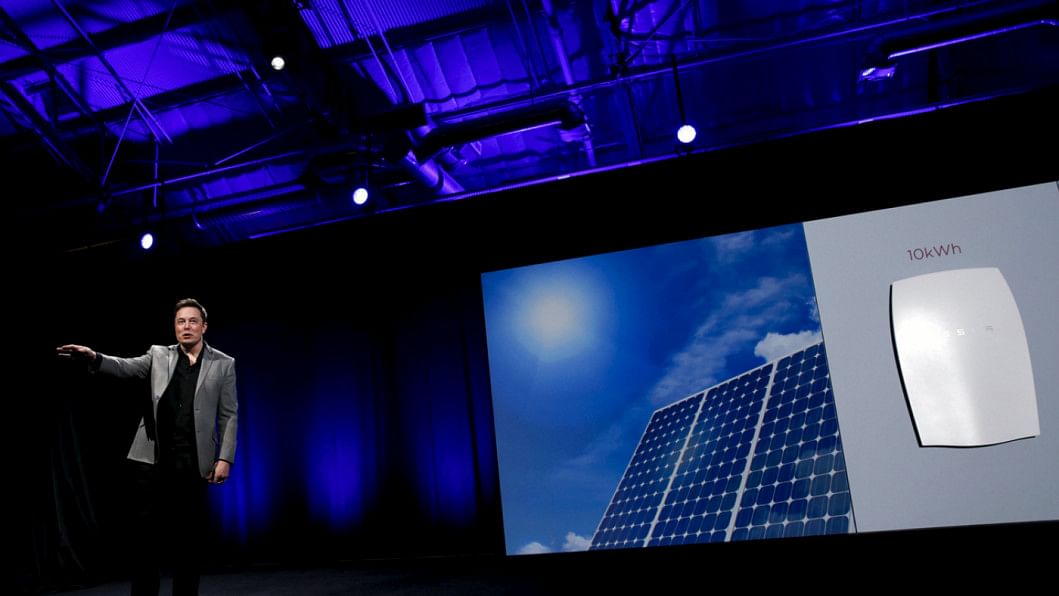Tesla unveils batteries to power homes

US electric carmaker Tesla Motors has unveiled batteries that can power homes and businesses as it attempts to expand beyond its vehicle business.
Chief executive Elon Musk announced the firm would build batteries that store solar energy and serve as a back-up system for consumers during blackouts.
The device would allow consumers to get off a power grid or bring energy to remote areas that are not on a grid.
Tesla plans to start shipping the units to installers in the US by this summer.
In a highly anticipated event near Los Angeles, Musk said the move could help change the "entire energy infrastructure of the world".
"Tesla Energy is a critical step in this mission to enable zero emission power generation," the company said in a statement.
The rechargeable lithium-ion battery unit would be built using the same batteries Tesla produces for its electric vehicles, analysts said.
The system is called Powerwall, and Tesla will sell the 7kWh unit for $3,000 (£1,954), while the 10kWh unit will retail for $3,500 (£2,275) to installers.
Energy comparison firm USwitch estimates that one kWh can power two days of work on a laptop, a full washing machine cycle or be used to boil a kettle 10 times.
Musk said the company would partner with SolarCity to install the home batteries, but there would be more companies announced.
Musk is SolarCity's chairman and largest shareholder.
The sales of battery storage systems for homes and businesses could yield as much as $4.5bn in revenue for Tesla, according to Deutsche Bank.
The automaker reported fourth quarter earnings that missed market expectations in February, as it saw a loss of $107.6m on production and delivery issues.
Friends of the Earth's renewable energy campaigner Alasdair Cameron said having solar panels and a home battery in the future could become as common as central heating.
"Just as the internet changed the way we use information so renewable sources, like wind and solar, are changing the way we make and use energy - and electricity storage is an important part of that change," he said.
"Cheaper and more efficient energy storage means individuals and businesses could save renewable energy until they need it, hugely reducing the need for climate-changing fossil fuels."
Colin Brown, director of engineering at the Institution of Mechanical Engineers said Tesla's announcement is timely considering the push by governments to reduce emissions.
"Without storage you've always got to have huge capacity just in case one of the peaks come through at a particular time - a very hot day when you need a lot of cooling, and so a lot of demand. With storage, you don't have to have all of that massive production of energy," he said.

 For all latest news, follow The Daily Star's Google News channel.
For all latest news, follow The Daily Star's Google News channel. 



Comments